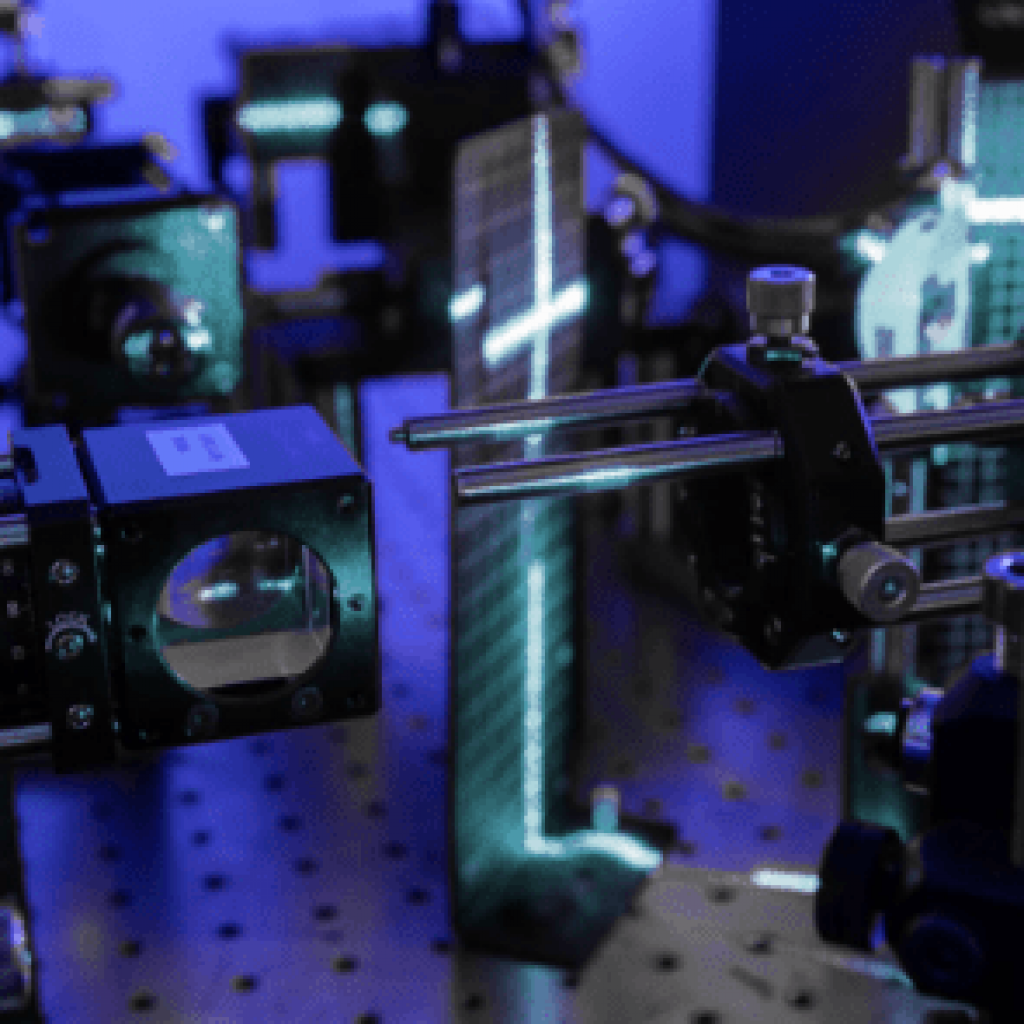LightSolver, an Israeli company that emerged three years ago talking about developing a “quantum-inspired optical processor,” is back in the spotlight, having unveiled this week what it called a “pure laser-based processing unit (LPU), a new computing paradigm” that the company argued can best the efforts of GPU-based supercomputers at optimization problems at a time when many quantum computers still lack scalability and practicality.
The “quantum-inspired” LPU, available now as a software-as-a-service solution, leverages all-optical coupled lasers that require no electronics to compute, enabling it to be as small as a traditional desktop computer while maximizing the ability to achieve scalability, low power requirements, and room temperature operation, according to a LightSolver statement.
The company’s proprietary LPU relies on lasers “to interfere and thus fulfill all the constraints of a given problem instantaneously. It works by converting a mathematical representation of a business problem into a physical logic formulation, then mapping this special formulation into “obstacles” within the optical path in which the lasers operate,” according to LightSolver. “Due to the wave nature of the lasers and the proprietary mapping, the laser beams converge into the desired solution. The solution is then measured and translated back to the business language of the user.”
LightSolver CTO and co-founder Chene Tradonsky, Ph.D, added, “LightSolver solves hard optimization problems by translating business challenges to mathematical formulations, like an Ising model; however, it has the flexibility to implement other kinds of models that are not necessarily binary. Unlike quantum, our device is portable, operates at room temperature, and does not suffer from environmental sensitivity or need error correction protocols. Furthermore, LightSolver is entirely built with commercially available components and can scale significantly without increasing the size of the device.”
LightSolver claimed it already has proven the performance and accuracy of its all-optical approach in multiple published papers:
- In a head-to-head challenge, LightSolver achieved 2X-1,000X faster Time-to-Solution (TTS) for solving Max-2-SAT problems compared to a leading deep learning solver.
- Taking on the “3-Regular 3-XORSAT Challenge,” LightSolver solved the problem in polynomial time, while all other state-of-the art classical and quantum computers solved it in exponential time.
- LightSolver developed a quantum-inspired algorithm for sparse coding that resulted in more accurate estimations than classical approximation methods.
LightSolver was founded in January 2020 by Tradonsky and co-founder Ruti Ben Shlomi, who can be seen talking about the company in this Intel Ignite video. The Tel Aviv firm participated in the Intel start-up program in 2021.
Dan O’Shea has covered telecommunications and related topics including semiconductors, sensors, retail systems, digital payments and quantum computing/technology for over 25 years.
